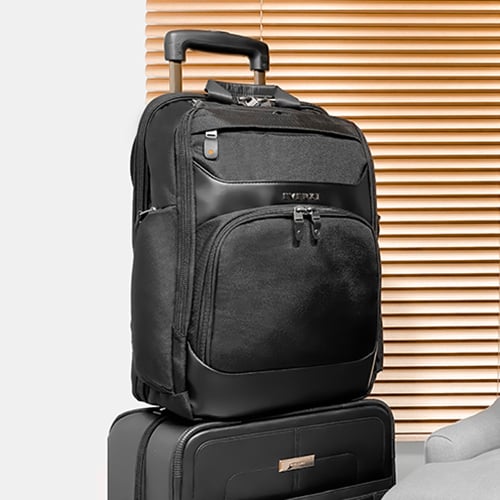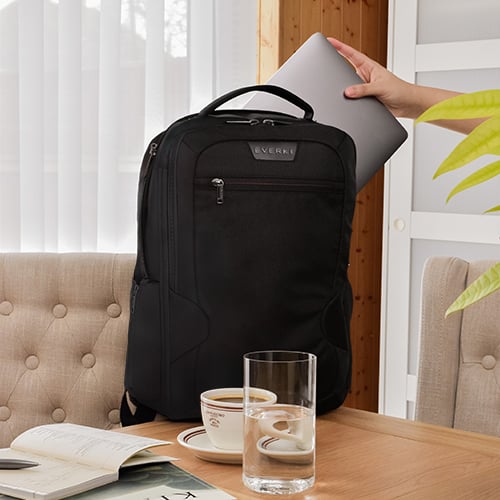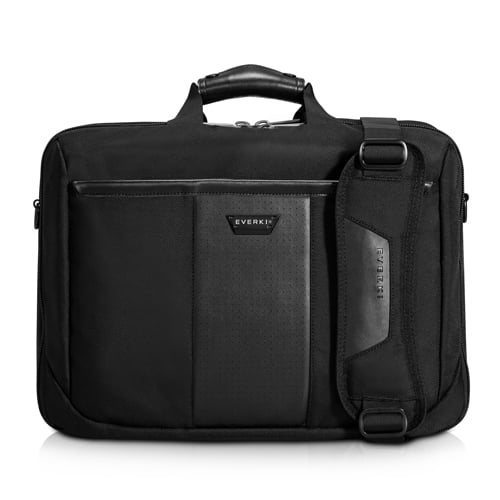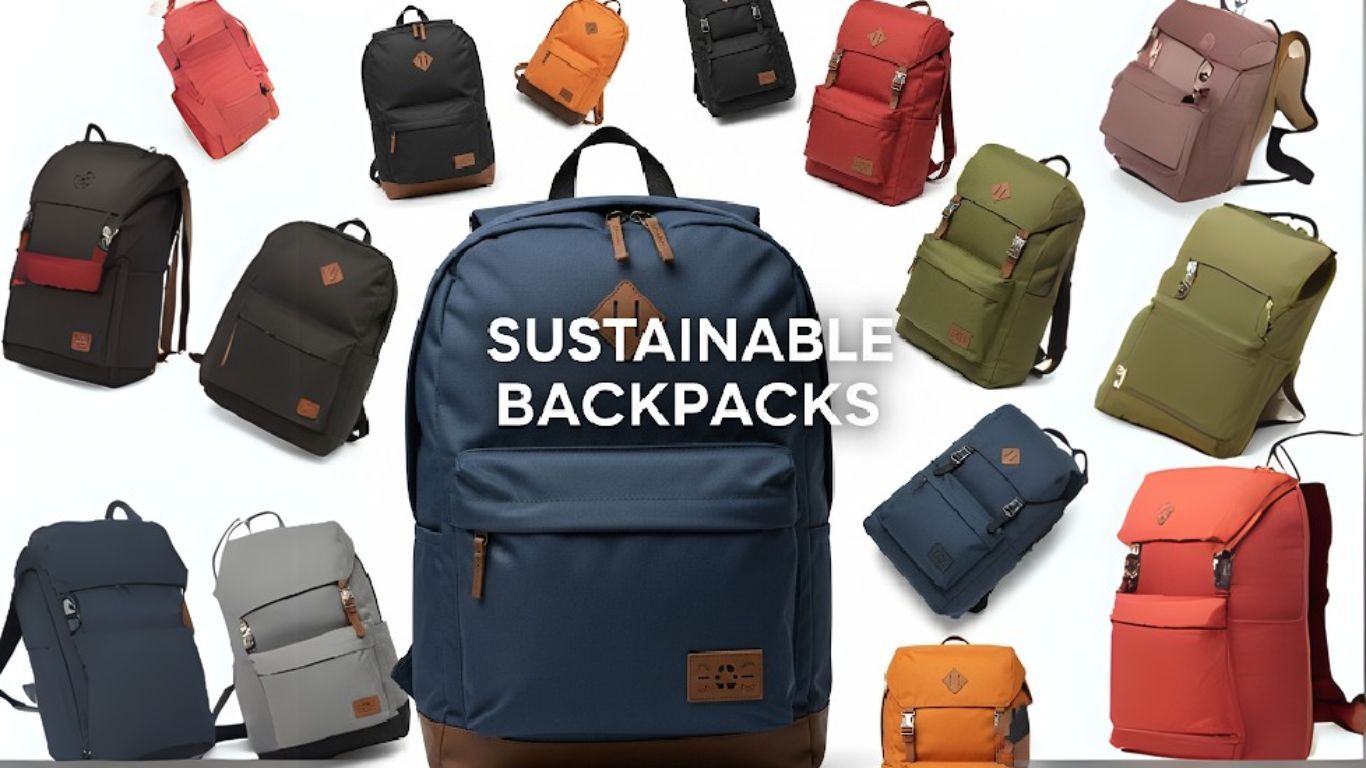Quick Summary
- A detailed look at sustainable backpacks and what differentiates them from regular backpacks.
- This article also looks at the key features and benefits you can expect from buying and using a sustainable backpack, with tips to help you get the perfect one.
Backpacks are an essential part of life for many people around the world. They provide their users with an easy and convenient method of carrying their belongings and keeping them safe. That said, modern backpacks are often not made in sustainable ways, damaging our already vulnerable environment.
Sustainable backpacks, on the other hand, are made in ways that do not harm the environment, making them amazing alternatives. So, What Are Sustainable Backpacks?
What are Sustainable Backpacks?
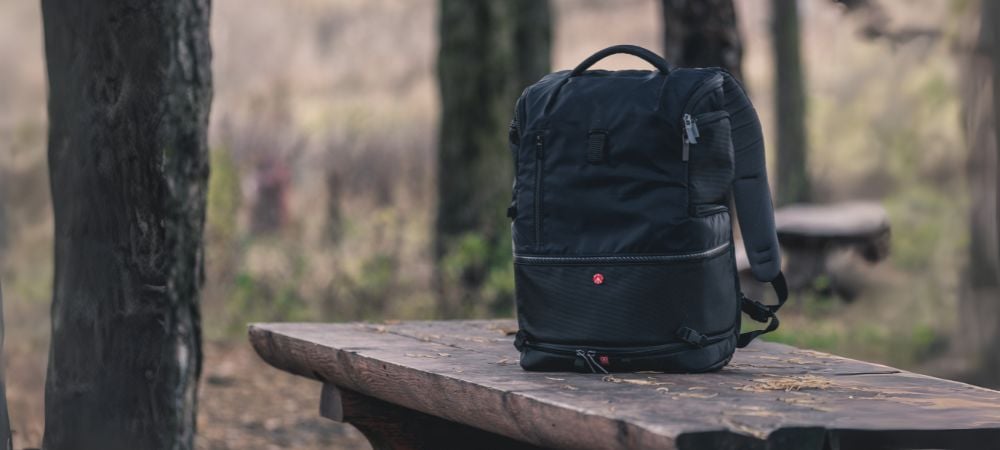

Sustainable backpacks are any backpack designed with the environment and ethical manufacturing in mind. For a backpack to be classified as sustainable, it's important to consider the materials used, how it's made, and the end product.
These backpacks are often made from recycled, organic, or renewable materials. They're built to last, repairable when damaged, and designed to create less waste. And beyond the product itself, sustainability also involves people. That means fair labour practices, safe working conditions, and transparent supply chains.
Key Features
So, what sets sustainable backpacks apart from regular backpacks?
When looking at the backpacks themselves, they are often made from natural organic materials that are very durable and long-lasting. An example of such material is hemp, one of the most sustainable crops in the world. Hemp backpacks are extremely durable and is naturally resistant to damaging factors such as UV rays.
Vegans also often consider sustainable backpacks vegan backpacks. Everything that goes into making them is very animal-friendly and doesn't harm animals at all.
On top of their durability, sustainable backpacks are also very easy to repair, as the materials used to make them are very easy to work with. They also come equipped with everything you might need from a modern backpack, so you can find sustainable backpacks for school or eco-friendly travel backpacks.
Benefits of Using Sustainable Backpacks


Switching to a sustainable backpack isn't just about feeling good—though that's certainly a plus. There are real, tangible benefits of sustainable backpacks that make using them very worthwhile.
Environmental Impact
Less Waste
Using recycled or biodegradable materials means fewer backpacks end up in landfills. Some brands even take back your old bag when you’re done with it.
Lower Emissions
Recycling materials takes less energy than creating new ones from scratch, leading to a smaller carbon footprint overall.
Resource Conservation
Materials like hemp or recycled polyester help conserve water and reduce the use of fossil fuels compared to conventional materials.
Social Good
Fair wages and safe working conditions mean that your purchase supports dignity and stability for workers — not exploitation.
Cost Over Time
You might spend more upfront on a sustainable backpack, but its durability and repairability often mean you'll spend less in the long run. Think of it as a smart investment.
Better for You
Sustainable backpacks are often safer for you without harsh chemical treatments — especially if you're carrying food, baby supplies, or other sensitive items.
Feel-Good Factor
Knowing that your purchase supports ethical practices and reduces harm to the planet adds a layer of satisfaction to every use. It’s one of the simplest ways to live your values.
Sustainable Backpacks vs Regular Backpacks
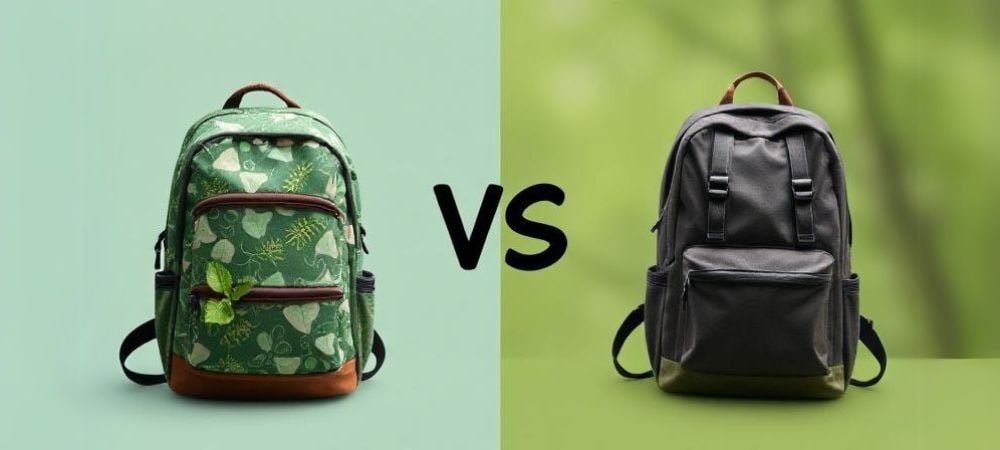

When looking at the final product, there are quite a few differences between sustainable and regular backpacks.
Materials Used
One of the first things to consider is what is used to make the backpacks. Sustainable backpacks are often made using organic materials that are sourced in very ethical ways. That said, these materials are still very durable and high quality. Good regular backpacks also use very high-quality materials, but these materials are often harmful to the environment.
Health Benefits
The materials used to make sustainable backpacks are often better for your health, as they don't contain harmful chemicals or plastics. Everything is made using natural materials, and these materials often have fewer side effects.
Manufacturing Process
One of the biggest differences in the manufacturing processes of regular and sustainable backpacks is the labour used in making these backpacks. Regular backpacks are often made using extremely cheap labour, and this is, in many ways, labour exploitation as the workers make very little money and work extremely long hours
Sustainable backpack manufacturers on the other hand treat their workers much better. This is one of the biggest benefits of supporting ethical backpack brands that produce sustainable backpacks.
How to Choose the Right Backpack For You?
There are a lot of options out there. Here’s how to make sure you pick one that fits your needs — and lives up to the “sustainable” label.
Do Your Homework
Dig into the brand’s values. If they’re vague about where their materials come from or how they treat workers, that’s a red flag.
Look for Third-Party Certifications
Labels like OEKO-TEX, GOTS, and Fair Trade aren’t just for show — they mean someone’s holding the brand accountable.
Match It to Your Lifestyle
Need something lightweight for biking? Rugged for hiking? Sleek for city commuting? Choose a backpack that works for your daily life.
Prioritize Comfort
Look for padded straps, good weight distribution, and breathability. Sustainable doesn’t mean you have to sacrifice comfort. A good example of a brand that gives you comfortable backpacks that are also sustainable is Everki. Everki is home to a ton of top of the line sustainable laptop backpacks that are good for all sorts of users.
Read Real Reviews
Don’t just trust product descriptions. See what other users have to say about durability, design, and functionality.
Conclusion
So there you have it, a thorough look at what sustainable backpacks are, and what their top features and benefits are. By choosing a sustainable backpack over a regular one, you not only help yourself but you help the environment around you and the workers that go into making the backpack.
Nowadays there are tons of brands that offer an array of sustainable backpacks that give you extremely high quality backpacks that are made in environmentally friendly ways. Everki is one of these brands, as they are home to some very high quality sustainable backpacks that tick all the right boxes. The Everki Studio Expandable Eco Laptop Backpack is a perfect example of this, as it is a very good laptop bag you absolutely need to have.
FAQs
Q: Are sustainable backpacks really better for the environment?
A: Yes. Sustainable backpacks are designed to have a lower environmental impact from start to finish. They often use recycled or organic materials, require less energy to produce, and are made to last longer—reducing the need for frequent replacements and keeping waste out of landfills.
Q: Do sustainable backpacks cost more than regular backpacks?
A: Initially they do, but sustainable backpacks will end up saving you a lot of money in the long run as they are built to last and are made in a way that makes them very easy to repair and maintain.
Q: Are sustainable backpacks weather and waterproof?
A: Most sustainable backpacks are very resistant to environmental factors like sunlight and rain. This will obviously depend on what materials are used in making the backpack. So when buying the backpack, make sure it can do what you want it to do.

